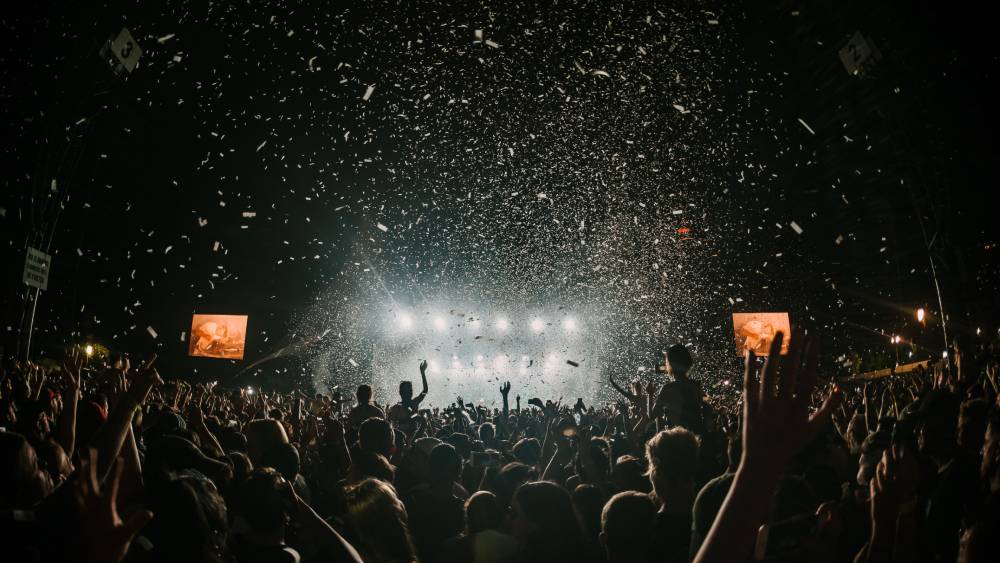Want to learn how to access airtime for your music on local, community or online radio? Check out these top tips from station managers, DJs, artists and producers…
It’s no surprise that hyperlocal channels and niche stations are gaining momentum, as the gulf between the mainstream and underground grows ever-wider and digital listening continues to splinter traditional radio audiences.
Peer in closer between the commercial bandwidth and BBC public service remit, and you’ll find independent online and FM platforms crackling with innovation. Presided over by the likes of NTS, Soho Radio, Roundhouse Radio, Reprezent, Rinse, KMAH, MCR and Reform, these stations are part of a growing guerrilla movement offering idiosyncratic music selections from both local talent and big-name DJs.
Here, we speak to some of the leading lights in this movement to learn how artists, producers and DJs can get in on the action…
DJ Paulette, presenter on MCR, Reform, Gaydio
First of all, you need to be up and running on your socials. You should be able to easily send links to your tracks and mixes. Find out who the contacts are at the station, send them a link to listen to you, but keep it short and sweet. Start off contacting the smaller stations and work your way up. For mixes, use Mixcloud not Soundcloud.
Xanthe Fuller, community manager, Mixcloud
Do your research, find out the shows that play music similar to yours, find the contact details of that show host and/or producer, and then message them with your tune. Make it as easy as possible for them to hear the tune instantly. If it involves complicated downloads or click-throughs, someone with a full inbox might not bother to take those extra steps.
Even better, if you’re naturally able to build a rapport with a host before sending them music, that might make more impact. Don’t stalk them! But if you enjoy their show, make that known on their channels, show support and say why you like it. Also go to nights where your kind of music is played, build up natural networks of friends; you never know, any one of those friends might end up in a position to play your music.
Trevor Jackson, DJ, producer, label owner and NTS Radio presenter
The thing about NTS is that it feels like a real community of people, and that’s an important thing to tap into. I live around the corner from the station. I feel proud to be involved, and it’s become important for me – in an increasingly more digital world – to have physical relationships, friendships, and communication with real people. You shouldn’t underestimate that. Understand the power of the community.
Adrian Newman, station manager, Reprezent Radio
There are loads of little things you should think about, like keeping an eye on the detail, not being in a rush to drop your music out there, really ensuring both the music and artwork are as perfect as they can be.
Don’t try to tailor your sound to a particular station or scene. Do it for yourself and, if you're in step with the way everyone else’s thinking, you’ll go far. If you're out of step, then don’t change, be true to yourself.
When thinking about connecting with radio, I would say you shouldn’t really worry about us because we’re looking for you. You don’t have to try too hard, we’re constantly looking for new music - you just have to release great stuff and we’ll find it.
Thea Hudson-Davies, The Leaf Label, and presenter on KMAH
When I am looking for DJs to play our artists at Leaf, I take my time in picking them out. As a DJ too, I think it’s important to avoid sending impersonal mail-outs. There are so many ways you can get in touch with DJs now and if you’ve done your research, they’ll appreciate it.
Joe Hamilton, promotions manager/radio plugger, PIAS
Explore the station and listen back to the DJs. Find those that play similar music to yours and that you think would like/play your music. If you can’t find their email address online, hit them up directly via Twitter or Instagram with a link to your music and a little bit of info. The likelihood is they are going to be inundated with new music submissions so give them time to check it out. Also, if a DJ does play your track make sure you thank them and support them/the station in return.
Daisy, from Kitty, Daisy and Lewis
I think it’s always a good idea to go and visit the stations and chat to someone there. Talking directly in person can be much more effective than just sending an email or posting a CD. It will enable them to see your personality and passion for what you do.
Rachael Bird, station manager, Soho Radio
Because we cover a wide variety of genres, we can showcase loads of artists. We allow the presenters to play whatever they want - so if they want to champion unsigned artists or up-and-coming acts, they can. There is a massive variety of shows that these songs will fit onto.
We often get sent tracks by email, by post, and we make sure that we listen to them all, give them to the right presenter and get them to play them on their show. It helps if you make sure your music is easy for us to listen to and you have a presenter in mind.
It’s no surprise that hyperlocal channels and niche stations are gaining momentum, as the gulf between the mainstream and underground grows ever-wider and digital listening continues to splinter traditional radio audiences.
Peer in closer between the commercial bandwidth and BBC public service remit, and you’ll find independent online and FM platforms crackling with innovation. Presided over by the likes of NTS, Soho Radio, Roundhouse Radio, Reprezent, Rinse, KMAH, MCR and Reform, these stations are part of a growing guerrilla movement offering idiosyncratic music selections from both local talent and big-name DJs.
Here, we speak to some of the leading lights in this movement to learn how artists, producers and DJs can get in on the action…
DJ Paulette, presenter on MCR, Reform, Gaydio
First of all, you need to be up and running on your socials. You should be able to easily send links to your tracks and mixes. Find out who the contacts are at the station, send them a link to listen to you, but keep it short and sweet. Start off contacting the smaller stations and work your way up. For mixes, use Mixcloud not Soundcloud.
Xanthe Fuller, community manager, Mixcloud
Do your research, find out the shows that play music similar to yours, find the contact details of that show host and/or producer, and then message them with your tune. Make it as easy as possible for them to hear the tune instantly. If it involves complicated downloads or click-throughs, someone with a full inbox might not bother to take those extra steps.
Even better, if you’re naturally able to build a rapport with a host before sending them music, that might make more impact. Don’t stalk them! But if you enjoy their show, make that known on their channels, show support and say why you like it. Also go to nights where your kind of music is played, build up natural networks of friends; you never know, any one of those friends might end up in a position to play your music.
Trevor Jackson, DJ, producer, label owner and NTS Radio presenter
The thing about NTS is that it feels like a real community of people, and that’s an important thing to tap into. I live around the corner from the station. I feel proud to be involved, and it’s become important for me – in an increasingly more digital world – to have physical relationships, friendships, and communication with real people. You shouldn’t underestimate that. Understand the power of the community.
Adrian Newman, station manager, Reprezent Radio
There are loads of little things you should think about, like keeping an eye on the detail, not being in a rush to drop your music out there, really ensuring both the music and artwork are as perfect as they can be.
Don’t try to tailor your sound to a particular station or scene. Do it for yourself and, if you're in step with the way everyone else’s thinking, you’ll go far. If you're out of step, then don’t change, be true to yourself.
When thinking about connecting with radio, I would say you shouldn’t really worry about us because we’re looking for you. You don’t have to try too hard, we’re constantly looking for new music - you just have to release great stuff and we’ll find it.
Thea Hudson-Davies, The Leaf Label, and presenter on KMAH
When I am looking for DJs to play our artists at Leaf, I take my time in picking them out. As a DJ too, I think it’s important to avoid sending impersonal mail-outs. There are so many ways you can get in touch with DJs now and if you’ve done your research, they’ll appreciate it.
Joe Hamilton, promotions manager/radio plugger, PIAS
Explore the station and listen back to the DJs. Find those that play similar music to yours and that you think would like/play your music. If you can’t find their email address online, hit them up directly via Twitter or Instagram with a link to your music and a little bit of info. The likelihood is they are going to be inundated with new music submissions so give them time to check it out. Also, if a DJ does play your track make sure you thank them and support them/the station in return.
Daisy, from Kitty, Daisy and Lewis
I think it’s always a good idea to go and visit the stations and chat to someone there. Talking directly in person can be much more effective than just sending an email or posting a CD. It will enable them to see your personality and passion for what you do.
Rachael Bird, station manager, Soho Radio
Because we cover a wide variety of genres, we can showcase loads of artists. We allow the presenters to play whatever they want - so if they want to champion unsigned artists or up-and-coming acts, they can. There is a massive variety of shows that these songs will fit onto.
We often get sent tracks by email, by post, and we make sure that we listen to them all, give them to the right presenter and get them to play them on their show. It helps if you make sure your music is easy for us to listen to and you have a presenter in mind.





